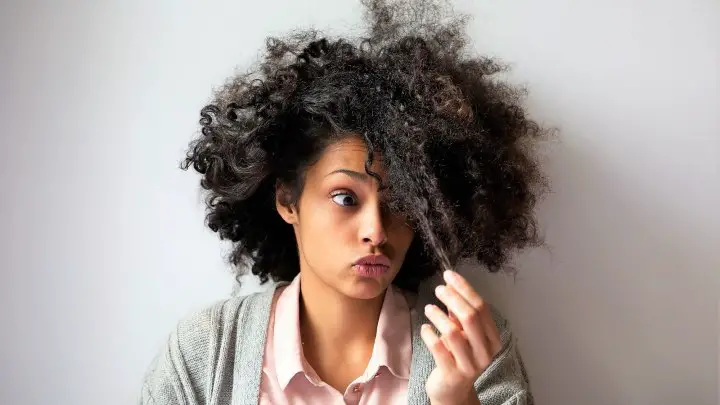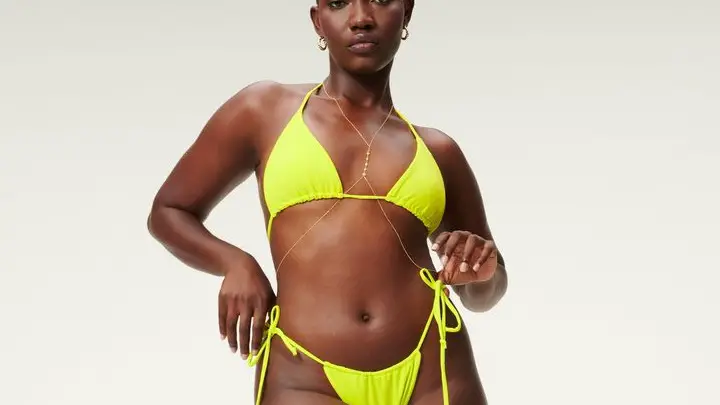The short answer to the question ‘can bed bugs live in your hair?’ is no. While a bed bug can crawl onto your head or body, it won’t live in your hair.
Bed bugs are parasites that feed on the blood of humans and animals while they sleep. You can find them anywhere people tend to gather or rest. This includes hotels, homes, and public transportation, such as buses and trains.
In this article, we will look at what bed bugs are, whether or not they live in human hair and how you can identify them.
What Are Bed Bugs?
Bed bugs are wingless insects that feed only on the blood of humans and warm-blooded animals. While they are mostly active at night and prefer darkness, they will come out during the day if they’re hungry.
Bed bugs, despite their name, do not just live in beds. You can also find them in sofas, chairs, floor cracks, electrical outlets, and picture frames. They live by sucking blood from their hosts, which can cause an allergic reaction in some people.
The insects cannot fly, but they can move quickly over floors, ceilings, and walls. They can even travel between rooms inside a home or between apartments in apartment buildings if there are enough cracks or holes for them to pass through.
If you’ve been bitten by a bed bug, or if you suspect you’ve been bitten by a bed bug, contact an exterminator immediately. Most pest control companies offer free estimates over the phone.
Many also offer a 24-hour emergency service to ensure that your problem is dealt with as quickly as possible so that you don’t have to wait until the next day for help.
Can Bed Bugs Live In Your Hair?
The answer is no, bed bugs cannot live in human hair. If a bed bug did happen to wander onto your head, it would just be passing through.
The only exception is if you haven’t showered or shampooed in a long time and your hair becomes greasy. Then any small insects might be attracted to it as a hiding place.
Bed bugs prefer exposed skin, so they will target your face, neck, hands, and legs instead. They can bite you when you’re sleeping or even when you’re awake.
SEE: How Often Should You Wash Your Hair – A Complete Guide
How Do You Tell if There Are Bed Bugs in Your House?
There are a few different ways you can tell if there might be bed bugs in your home:
Bites
This is the most common sign of bedbugs, but it’s also not 100 percent reliable. Some people have little reaction to bedbug bites, so they don’t notice them at all. Others mistake them for mosquito or flea bites, which are similar in appearance.
If you do have bites, though, it’s likely from bedbugs if:
- You only notice them after being in a particular room of your house.
- They appear in a line or cluster.
- They still itch after a few hours of being bitten.
Shed exoskeletons
These are shed during the molting process as bed bugs grow from nymphs (babies) to adults. You can find shed exoskeletons among the folds of mattresses and behind headboards (anywhere bed bugs tend to hide).
Bloodstains
If you see blood stains on your mattress or sheets, it’s time for a closer inspection of your bedding and furniture. They can occur when bed bugs have been crushed as someone rolls over on them (or from any heavy pressure).
Brown stains
One of the best ways to find a bedbug infestation is through the brown stains they leave behind. If you wake up in the morning and notice small brownish stains on your mattress and sheets, there’s a good chance that you’re dealing with bedbugs.
How Do You Get Rid of Bed Bugs in Your House?
- Wash all sheets, blankets, pillowcases, and bedcovers in hot water for at least 30 minutes.
- Dry the washed bedding on high heat for another 30 minutes.
- Vacuum your mattress and surrounding area, then dispose of the vacuum bag outside in a sealed trash bag.
- Get rid of clutter around your bed. The more clutter you have, the more places bedbugs have to hide, which makes it harder to get rid of them.
- Seal off any cracks and crevices where you might find them with plaster, or other sealants.
- Use a steamer on mattresses, box springs, and other bedding materials to kill bugs and their eggs. Steamers are available for rent at some hardware stores.
- If you don’t already have them, invest in some mattress encasements to prevent bed bugs from getting in or out.
- Spray the room with an insecticide that has pyrethrin in it or one that says it’s for bed bugs.
- Put some bed bug traps around your bed to catch any stragglers that aren’t killed by the spray.
- If you believe you have a severe bed bug infestation in your home, call a professional exterminator immediately. They can help treat the problem and give advice on how to dispose of items that may be harboring the bugs.
What Scents Keeps Bed Bugs Away?
There are a ton of wonderful and completely natural scents that can repel bed bugs. A few of these include:
Lavender oil
Lavender oil has a light scent that some people find soothing, but it has an intense effect on bed bugs. You can use lavender oil as an additive in cleaning products or on its own to get rid of bed bugs.
Cinnamon
Cinnamon is another scent that can help ward off bed bugs. Besides its powerful scent, cinnamon can also kill germs and bacteria, which makes it an excellent natural cleaning product.
You can use it separately or in combination with lavender oil to create a homemade spray to repel bed bugs from your home.
Lemon eucalyptus oil
Lemon eucalyptus oil is the active ingredient in most mosquito and bed bug repellent sprays. It has the double effect of repelling bed bugs while also killing them on contact.
To try out this method, mix lemon eucalyptus oil with water in a spray bottle. Spray the solution all over your mattress and box springs, focusing on any cracks or seams where the bed bugs might be hiding.
SEE: Here Are Some Unique Ways to Effectively Use Essential Oils
Cloves
Cloves work similarly to these oils. They have an extremely strong odor that is very effective in repelling bed bugs. Simply spread whole cloves around your mattress and pillows to repel bed bugs with their scent.
FAQs
Do bed bug bites cause allergic reactions?
Yes, they do. While some people are not sensitive to bed bug bites, others may experience allergic reactions such as inflammation, swelling, and itching that last for several days.
If you have a severe allergic reaction after getting bitten by a bed bug, seek immediate medical attention.
Can bed bugs live in your pillow?
Yes, they can. Bed bugs can also live in your mattress, box spring, and headboards, as these are ideal places for them to hide.
Can bed bugs fly?
No, they can’t. Bed bugs are good at crawling, however, and can move quickly over floors, walls, and ceilings. When they want to travel long distances, they crawl into luggage or clothes and let people move them around.
What do bed bug bites look like?
Bed bug bites often look like small red bumps on the skin. While these may be itchy, they usually aren’t painful. You can treat the itching with anti-itch creams and lotions such as calamine lotion or hydrocortisone cream. Taking an antihistamine pill may help reduce the itching as well.
Can bed bugs stay on your skin after showering?
No, they can’t. Any bed bug stuck to your skin while you’re in the shower is likely to get washed off and drown. So, ensure to wash your skin thoroughly with soap and water to remove any bed bugs.
Conclusion
Bed bugs don’t live in your hair. They come out to feed at night (and sometimes during the day), but then go back into their hiding place and stay there.
Hopefully, this article has helped you understand bed bug behavior and why they can’t live in your hair. More importantly, it has given you a clear understanding of what you can do to get rid of these unwanted insect intruders.
Thanks for reading.
For more information on bed bugs, visit Africana Fashion today.







